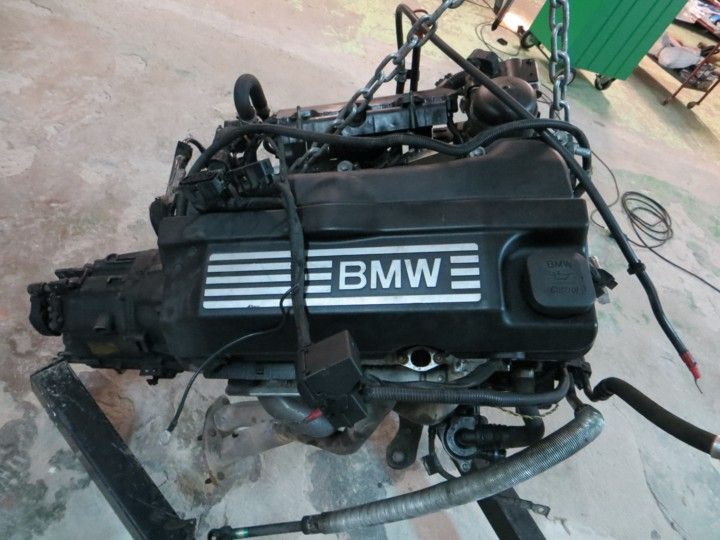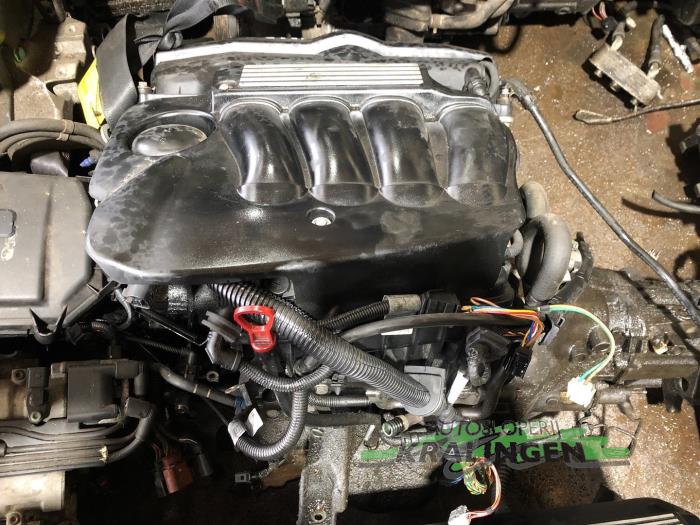Vital Considerations for Picking the very best Engine for Your Needs
In the world of choosing the ideal engine to fulfill your requirements, numerous important factors demand thorough factor to consider to ensure ideal efficiency and effectiveness. From the nuanced equilibrium between power and performance to the often-overlooked facets of maintenance and solution requirements, each aspect plays a crucial role in establishing the most ideal engine for your details needs. As the intricacy of engine technologies continues to progress, critical one of the most fitting choice demands a deep understanding of the interplay between different factors to consider. By exploring the complex web of elements that underpin this decision-making procedure, a more clear course emerges towards choosing an engine that not just meets but surpasses your expectations.
Power and Performance
When evaluating engines for optimal efficiency, it is crucial to prioritize both power output and efficiency. Power output measures the capacity of an engine to create power, which straight affects its performance. A high power result is essential for requiring jobs such as high-speed requirements or heavy-duty applications. It makes certain that the engine can handle the work successfully and effectively. Nevertheless, power alone is not sufficient; efficiency plays a considerable role in identifying the overall efficiency of an engine. Efficiency describes exactly how well the engine converts gas into usable power. A a lot more effective engine will supply better gas mileage, lower emissions, and reduced operating costs. Striking the appropriate equilibrium in between power outcome and effectiveness is essential to selecting an engine that fulfills your particular demands. When making this decision, it is necessary to take into consideration aspects such as the intended use of the engine, ecological impact, and long-lasting price ramifications. By very carefully assessing both power and effectiveness, you can choose an engine that provides optimum performance and satisfies your needs properly.
Fuel Effectiveness and Economic Situation
Fuel efficiency refers to the engine's capacity to transform fuel into power with very little waste, straight affecting operating costs and environmental sustainability. Engines with greater fuel efficiency not only decrease fuel expenses however also decrease carbon discharges, adding to a greener procedure.

Compatibility and Application
Thinking about the gas performance and economic climate of an engine, the following crucial aspect to address is its compatibility and application within certain functional contexts. Compatibility refers to how well the engine integrates with the general system or tools it powers.
Moreover, the application of the engine is similarly essential. Different engines are developed for certain functions, whether it be commercial equipment, marine vessels, autos, or power generators. Understanding the designated application enables the selection of an engine that can provide the necessary power result, torque, and functional characteristics. For instance, a high-revving engine created for efficiency vehicles would not appropriate for durable building equipment that needs high torque at reduced rates.
Upkeep and Solution Needs
Maintenance and service needs play an important duty in guaranteeing the durability and optimum efficiency of an engine. Regular upkeep is necessary to avoid malfunctions, expand the life-span of the engine, and maintain its efficiency. When choosing an engine, it is crucial to consider the supplier's recommended maintenance schedule and the availability of service centers or certified service technicians.
Variables such as the regularity of oil changes, filter replacements, and overall inspections can considerably affect the engine's efficiency. Some engines might call for even more regular servicing based on their design and see it here usage, while others may have longer intervals between maintenance checks. It is vital to abide by these you could look here solution needs to stay clear of pricey repair services and unanticipated downtime.

Price and Budget Plan Considerations
Spending plan restrictions typically play a significant duty in the decision-making process when selecting an engine for a certain application. When thinking about the cost and budget plan implications of selecting an engine, it is vital to analyze not only the first acquisition rate but likewise the long-term costs linked with maintenance, gas consumption, and prospective upgrades or repair services. It is essential to strike an equilibrium between the in advance price of the engine and its overall lifecycle expenses to make certain that the chosen engine stays economically lasting throughout its operational life expectancy.
Factors such as gas longevity, effectiveness, and integrity can directly impact the complete expense of ownership of an engine. While a much more expensive engine might have higher upfront prices, it could possibly result in lower upkeep and fuel expenditures over time, thus supplying much better worth in the long run.
Final Thought

Gas performance refers to the engine's ability to convert gas right into energy with very little waste, straight influencing operating costs and environmental sustainability.Aspects influencing fuel effectiveness consist of engine layout, burning anonymous efficiency, and general efficiency optimization. In addition, choosing the proper gas type and grade as suggested by the engine manufacturer can even more improve effectiveness and lengthen engine lifespan.
Engines with great utility features and readily available parts can reduce maintenance costs and reduce the time the engine is out of operation - bmw 318ti. It is crucial to strike a balance between the upfront cost of the engine and its overall lifecycle costs to ensure that the chosen engine remains financially sustainable throughout its operational lifespan
 Jonathan Lipnicki Then & Now!
Jonathan Lipnicki Then & Now! Judge Reinhold Then & Now!
Judge Reinhold Then & Now! Ashley Johnson Then & Now!
Ashley Johnson Then & Now! Lucy Lawless Then & Now!
Lucy Lawless Then & Now! Robin McGraw Then & Now!
Robin McGraw Then & Now!